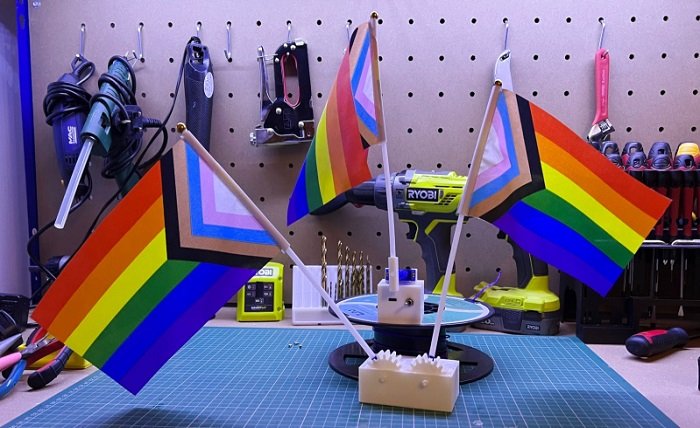The Role of a Name Flag Waver: Symbolism, History, and Significance

The term “name flag waver” may not be immediately familiar to everyone, but it holds a rich historical and cultural significance. A name flag waver is someone who proudly displays a flag to show support for a particular cause, group, or belief. Flags have long been symbols of identity, loyalty, and power, and the act of waving them can serve as both a display of unity and an assertion of values. In this post, we will explore the concept of a name flag waver, its role in various societies, and how it has evolved over time.
What is a Name Flag Waver?
A name flag waver is typically an individual who carries or waves a flag as a sign of allegiance, pride, or support for something specific. This could be a country, a political cause, a sports team, or even a personal identity. Flags serve as symbols of unity and loyalty, and when a person identifies with a flag, they often take on the role of a flag waver to represent that symbol. The act of waving a flag can be both a celebratory and political gesture, depending on the context. The name flag waver is not just an observer but an active participant in fostering unity and strength through visual representation.
The Symbolism Behind a Name Flag Waver
For a name flag waver, the flag they wave is much more than just a piece of cloth. It represents a set of values, beliefs, or affiliations that are important to them. The colors, patterns, and shapes on a flag often carry deep meanings tied to history, culture, and identity. A name flag waver may see the flag as a symbol of pride, patriotism, or solidarity with others who share similar ideals. In some cases, waving a flag can be a political statement, a call to action, or a protest against injustice. The flag becomes a powerful tool for expression, and the name flag waver acts as its messenger.
Historical Context of the Name Flag Waver
Throughout history, the act of flag waving has been a significant form of expression. In ancient times, armies would use flags as a way to rally troops and establish their identity on the battlefield. The name flag waver has roots in these early uses of flags, evolving into a symbol of personal and collective identity. From national flags representing sovereign states to flags representing social movements, the tradition of waving a flag has continued to serve as a form of allegiance and protest. In modern times, the role of a name flag waver has expanded beyond the battlefield to political rallies, sporting events, and even social media, where individuals wave metaphorical flags to show support for causes.
How the Name Flag Waver Contributes to Social Movements
A name flag waver plays a crucial role in social and political movements. Whether it’s waving a flag in support of civil rights, gender equality, or environmental protection, the act of displaying a flag can be a powerful way to communicate solidarity and raise awareness. The name flag waver often becomes a visible symbol of a cause, helping to mobilize others and rally support. By waving the flag, they send a clear message about their stance on an issue, and in many cases, this act of visibility can inspire others to join the movement or take action. The name flag waver’s role in social movements has been integral in shaping public opinion and effecting change.
The Role of a Name Flag Waver in Political Contexts
In politics, the name flag waver can be a particularly important figure. Political campaigns often use flags to rally support for a particular candidate or party, and name flag wavers become the faces of these campaigns. They wave flags at rallies, parades, and events, helping to build momentum and create a sense of collective enthusiasm. A name flag waver in a political context is often seen as someone who embodies the values and goals of the campaign they are supporting. Whether it’s a national election or a local political cause, the name flag waver helps to reinforce the message and strengthen the campaign’s visibility.
Name Flag Waver and National Pride
For many people, being a name flag waver is closely tied to national pride. National flags represent the identity, history, and values of a country, and waving the flag is often seen as an act of patriotism. A name flag waver in this context is showing allegiance to their country and expressing a deep connection to its culture and heritage. This act can be particularly meaningful during national holidays, independence days, and other events that celebrate a country’s history and achievements. The name flag waver becomes a symbol of national unity, helping to bring people together in a collective celebration of shared identity.
Name Flag Waver in Sports Events
One of the most common places where name flag wavers are seen is in sports events. Whether it’s a local football game or an international sporting competition like the Olympics, flags are an essential part of the atmosphere. Name flag wavers in sports often display their support for a team or athlete by waving their team’s flag or the national flag of their country. The act of waving a flag at a sports event is a way of showing pride and passion for the team, and it often serves to rally the crowd and increase the energy of the event. For the name flag waver, this act becomes a way of participating in the larger community of fans, creating a sense of belonging and excitement.
Digital and Virtual Name Flag Wavers
In the digital age, the role of the name flag waver has expanded beyond physical events and into the virtual realm. With the rise of social media and online activism, name flag wavers can now express their support for causes and beliefs through digital means. This could include sharing a photo of a flag, changing a profile picture to feature a flag, or using a flag emoji to show solidarity. Digital name flag wavers use these virtual flags to advocate for causes, raise awareness, and promote unity, just as their physical counterparts do at rallies and events. The digital name flag waver plays a vital role in shaping online communities and amplifying voices on a global scale.
The Impact of Name Flag Wavers on Cultural Identity
Cultural identity is another area where the name flag waver has a profound impact. Flags are often symbols of cultural pride, representing the unique history, traditions, and values of a particular group or region. Name flag wavers from various cultures use flags to assert their identity, often in the face of adversity or marginalization. By waving a flag, they show the world that they are proud of who they are and where they come from. The act of waving a flag can be a way of reclaiming cultural pride and asserting one’s place in a global society. In this way, the name flag waver contributes to the ongoing celebration and preservation of cultural identities.
Name Flag Waver and the Future: Evolving Symbols
As society evolves, so too does the symbolism of the flag and the role of the name flag waver. In today’s rapidly changing world, flags are increasingly being used to represent new causes, identities, and movements. The name flag waver of the future may be someone advocating for climate action, social justice, or equality in ways that reflect contemporary global issues. The meaning of flags and the significance of waving them will continue to evolve, and the name flag waver will remain an essential figure in this ongoing dialogue. Whether physically or digitally, the act of waving a flag will continue to serve as a powerful form of expression and solidarity.
Conclusion
The name flag waver is much more than just someone holding a flag – they are a symbol of pride, unity, and advocacy. Whether in politics, sports, social movements, or cultural celebrations, the name flag waver plays a crucial role in fostering connection and visibility. As flags continue to evolve as symbols of identity and solidarity, the role of the name flag waver will remain an essential part of the story of human expression and unity. By waving a flag, individuals can communicate powerful messages and help shape the future of the causes they support.
FAQs
What does it mean to be a name flag waver?
A name flag waver is someone who proudly waves or displays a flag as a sign of allegiance, support, or identity.
What are some common causes associated with name flag wavers?
Name flag wavers may support causes related to nationality, politics, sports teams, social movements, or cultural identities.
Can a name flag waver use a flag digitally?
Yes, digital name flag wavers can share flags or use flag emojis on social media to express support for causes or identities.
How does flag waving contribute to social movements?
Flag waving serves as a visible expression of solidarity, helping to raise awareness and rally support for social causes.
Are there any historical examples of name flag wavers?
Throughout history, name flag wavers have been seen in military campaigns, political movements, and national celebrations.




